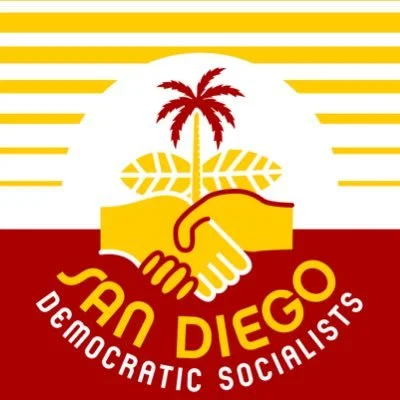

Washington Socialist - Metro DC DSA
posted at
The Stolen Valor of "Honor Flight"
A play on victimhood and political vanity performed in Nowhere, Ohio will leave viewers confused and mystified.


Washington Socialist - Metro DC DSA
posted at
Rockville tenants fight for rent stabilization
Tenants in Rockville are organizing to bring rent control to their city. Light resistance on their local city council, however, is frustrating ambitions.


Washington Socialist - Metro DC DSA
posted at
David Lynch: The Modern Cassandra
A society ruled by violent and antisocial impulse can’t persist. This warning went unheeded, and Troy was sacked. Will we listen to the next Cassandra?


Washington Socialist - Metro DC DSA
posted at
After the Great Society Subway, the Green Social Housing Eco-District
The communities and economies of the DC area were built atop a centrally coordinated public transit system. What if we applied the same for housing?


Washington Socialist - Metro DC DSA
posted at
What does the future of reproductive health look like?
What might reproductive health look like in a socialist future? An interview with local activist Adele Blow.


Washington Socialist - Metro DC DSA
posted at
Understanding Our Past, Forging Our Future
A misconceived history provides the backdrop of Trump’s MAGA appeal. A free future for the working class requires a real understanding of the past.


Washington Socialist - Metro DC DSA
posted at
It’s Time to Focus on Building Working-Class Organization
To fight against Trump-flavored fascism, socialists must focus on building authentic proletarian organization.


San Diego DSA
posted at
Seeding Food Sovereignty Priority Campaign: Spring 2025 Update
DSA San Diego has adopted food sovereignty as a 2025 Priority Campaign, and the work is already rolling forward! Read more. [...]
Read More... from Seeding Food Sovereignty Priority Campaign: Spring 2025 Update
The post Seeding Food Sovereignty Priority Campaign: Spring 2025 Update appeared first on Democratic Socialists of America | San Diego Chapter.


Washington Socialist - Metro DC DSA
posted at
Regulators promised to review Pepco's spending. They approved a rate increase instead.
By 2027, Pepco will have captured $231 million more in rates, taking nearly a quarter billion dollars from DC residents and businesses.


Washington Socialist - Metro DC DSA
posted at
Lunchtime Indulgence Made GUILT-FREE: 7+ Ways to Rock the DC Lunch Scene
Number 3 will SHOCK you!